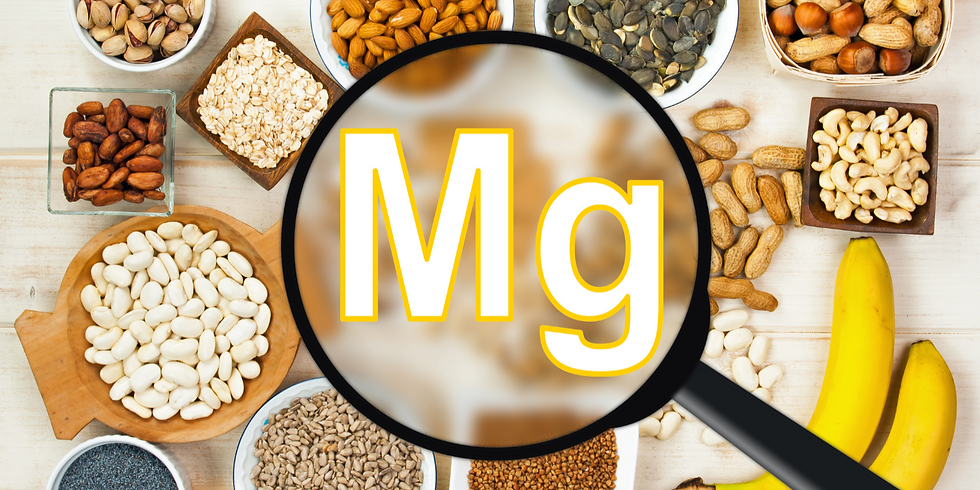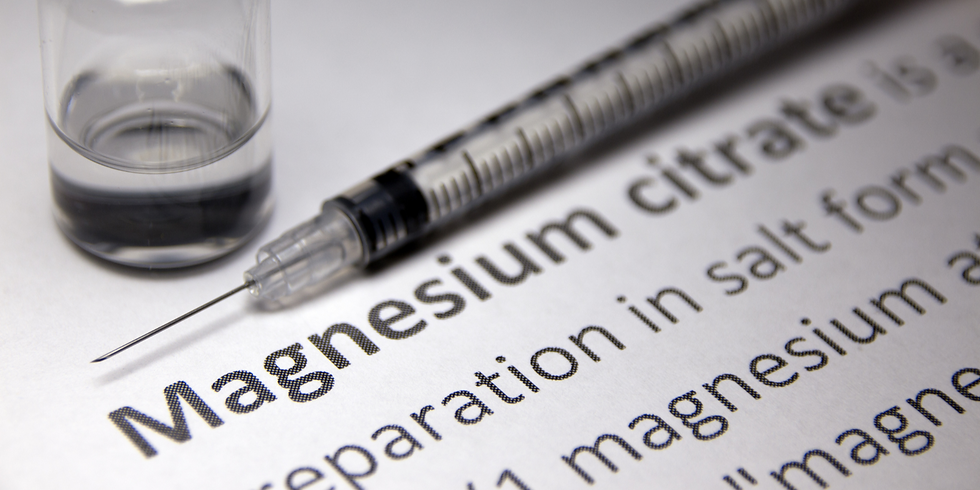3 Best Nutrients for a Strong Immune System
- Katie Bailey, MS, RD, LD, FNC

- Sep 29, 2025
- 6 min read
Have you ever asked yourself why your immune system may not be working as well as it should?
Maybe you're catching colds more often, you just feel run down, or you just don't bounce back the way that you used to.
When it comes to immune health, it often means looking at nutrient status, inflammation levels, our gut health as well as how the whole body is connected.
The foods that we eat and the nutrients that we fuel our body with plays a direct role in how well our immune system is going to fight off bacteria, viruses, and even recover from stress.
[Video Transcript Below + Supplement Links Discussed In Video]
Three Best Nutrients for a Strong Immune System
In today's video, we're diving into the three best nutrients for a strong immune system.
Vitamin C: The Classic Nutrient for Immune Resilience
So let's start with the classic nutrient that we think about when it comes to immune health, and that's vitamin C. So vitamin C is essential for immune resilience because it is a powerful antioxidant that protects our cells from oxidative stress. Now, oxidative stress can come from things like toxins. It can come from highly processed foods, environmental exposures, and even chronic emotional stress. When oxidative stress builds up in the body, it then suppresses our immune system, and vitamin C can help to neutralize that.

Now, vitamin C is also critical for producing collagen, which helps to strengthen our skin as well as our gut lining. Now, why does that matter? Well over 70% of our immune system is in our gut. So if our gut lining is leaky, damaged or inflamed, that's going to constantly be triggering our immune system, and so vitamin C can help to repair and protect that lining. Vitamin C also is supportive for the production of our white blood cells, and our white blood cells are our frontline soldiers of our immune system. So without enough vitamin C, these cells are not going to work as well, and our body's going to have a harder time fighting off infections.
Where to Get Vitamin C
Alright, so where are we going to get vitamin C? Well, naturally we're going to find vitamin C in our citrus fruits, kiwi, broccoli, bell peppers, and even parsley. It's also beneficial as a supplement, especially in liposomal form because it's going to be better absorbed, especially for those that are already struggling with their gut health. Now, if a vitamin C is about protection and repair, the next nutrient we're going to talk about is more about balance and regulation.
So I'm going to jump into that next. But first, I'm Katie Bailey. I'm a registered dietitian at Flusso Nutrients where we provide supplement education and professional quality supplement options for you to make world of nutrition supplements a little bit easier to navigate. But as always, be sure to check with your main nutrition literate healthcare provider before starting anything new. As we can't know your full medical history to provide a recommendation for you specifically.
Vitamin D: The Sunshine Vitamin and Immune Balance
Next step is vitamin D. So vitamin D is often called the sunshine vitamin, but when it comes to immune health, it's so much more Vitamin D acts like a hormone in the body, so it communicates directly with our immune system and specifically the immune cells, helping them to know when to activate and when to stand down. Without enough Vitamin D, your immune system can become too weak to be able to fight off infections or it can become overly active leading to things like inflammation and even some autoimmune conditions. In fact, research shows that individuals that have low vitamin D levels are more likely to get infections, colds, and even the flu.
How to Get Vitamin D
Okay, so how do you get vitamin D? So sunlight's going to be our best natural source. So just 10 to 20 minutes of direct sunlight exposure a day can help our body to synthesize vitamin D. Now, this is not going to be the most realistic for everybody considering where you live, what the season is, other issues or health issues you may have that could be impacting that. So you can also get it from things like fatty fish, salmon, mackerel, sardines. You can get it from egg yolks and a lot of fortified foods.
Now, a lot of people will benefit from taking a supplement for vitamin D3, especially people who live in certain areas or during the fall and winter months. You can pair it with a K2, which is helpful because both of those work together to support your immune system, but also bone health. But I do recommend that if you want to start vitamin D, it's always good to know what your levels are before starting just because there are some people who don't need extra vitamin D, and you can overdo it on vitamin D if you supplement too high. And there are some people who need pretty high doses because they're so low. So knowing what your levels are helpful so that you can really determine what's the best dosage for you. So far, we've covered protection and regulation.
Zinc: The Nutrient for Rebuilding and Recovery
Now let's talk about a nutrient that helps your immune system rebuild and recover, and that is zinc. So here's what makes zinc special. Zinc is directly involved in the creation and the activation of our immune cells. So when you're deficient, your body simply cannot make enough of your T cells, which are white blood cells that help you detect and destroy infected or abnormal cells. It also plays a huge role in wound healing, DNA repair and keeping inflammation under control. If you've ever noticed that you get sick more often or you just do not recover after being down, then zinc might be the missing link. Zinc is vital because it supports gut repair.
So a healthy gut lining is going to prevent unwanted toxins, undigested food particles and harmful microbes from getting your system and causing chronic inflammation. If you've heard of the term leaky gut, zinc is a critical part in strengthening that barrier. It's also necessary for the production of our stomach acid, which helps us to digest proteins and better absorb our nutrients without proper stomach acid. Not only does our digestion suffer, but your immune system is going to miss out on essential amino acids or minerals that are needed for it to function properly.
Best Food Sources of Zinc
Now, the best food sources of zinc are going to be things like oysters. That's probably the richest source of zinc, but you can also get it from pumpkin seeds, beef, poultry, or legumes. Now, a lot of people do also supplement with it, which is fine as well, but I will say you got to be careful not to overdo it with zinc because if you have too much zinc, then you can deplete your copper. So just be mindful of how much you're taking and for how long.
Connecting the Dots for a Strong Immune System
Okay, so now let's step back and connect the dots. So vitamin C, it acts like your immune system's a bodyguard, helping to reduce oxidative stress, strengthening that gut lining and protecting your immune cells. Vitamin C acts like your immune cells commander or immune system commander, regulating balance between defense and overreaction. And then lastly, zinc is your repair crew, so supporting your gut health, immune cell production and recovery.
Final Tips for Supporting Immune Health
Now, these nutrients don't work in isolation. They're part of a bigger system. Gut health, stress management, sleep and toxin exposure is all going to impact how well our body can utilize these nutrients. So supplements can be helpful, but always foundationally, we want to start with real food first, lifestyle sunlight, and identifying the root causes of imbalances. If you focus on these three nutrients as well as support your gut health, manage your stress, and get restorative sleep, you're going to give your immune system exactly what it needs to thrive. Now, if you're interested in supplementing with any of these nutrients, I'll have some quality options linked below.
That's it for today. If you like this video, please hit the like button and subscribe for more nutrition videos. Let us know in the comments if you have any questions. And if you're interested in working with our clinic, you can click the link here to schedule an initial appointment. We do take insurance. You can find more information about that on our website.
Thank you for watching. I'll see you next time. Bye.
Check out the high-quality supplements we discussed in this video - links below for your convenience!
1) Liposomal C: https://flussonutrients.nutridyn.com/liposomal-c
2) D3 5000 with K2: https://flussonutrients.nutridyn.com/d3-5000-with-k2
3) Zinc Picolinate: https://flussonutrients.nutridyn.com/zinc-picolinate-r977
4) ALL PROFESSIONAL QUALITY SUPPLEMENTS: https://flussonutrients.nutridyn.com & https://us.fullscript.com/welcome/flussonutrients




Comments